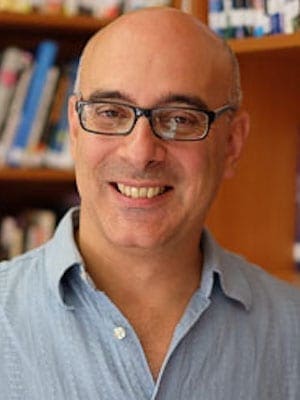During a conference I was attending in Ghana, I joined a group on a visit to one of the “slave castles” on the southern coast.
I expected it to be another touristic experience, as ancient castles are no rare sight in my country, Lebanon.
I am not known to be particularly emotional or to easily shed a tear. But even if my brain were to rationalize the information delivered to us by our knowledgeable guide, nothing could have prepared my body for the violence of the experience.
The castle interiors were not very different from other ancient fortresses – an internal courtyard with a chapel at its center. But the engraved signs above the doors and memorial inscriptions revealed a different story.
They told of dungeons, segregated male and female slave cells, and sweaty bodies stacked together in the intolerable stench of the constant tropical heat and humidity.
They told of intentional humiliation, starving and thirsting designed to break the human spirit and deprive it of all dignity, as well as of Portuguese, Dutch and British governors and soldiers servicing their lust by freely helping themselves to slave women.
My mind wrestled and justified, but none of these brain gymnastics was able to prevent the mounting, throbbing pain in my head and the sinking, gripping pain in my stomach.
By the time our visit ended about two hours later, my physical state was a mess. The thought of riding back on a bus was intolerable.
It was not so much the fact that nations claiming to be “Christian” were engaged in such activity that was the most repulsive.
Christians, after all, still belonged to their particular time and culture.
The thought that people could engage in such acts and then enter the courtyard chapel, engage in prayer, hear readings from the word of God and remain untouched by the Spirit of God is what caused my body to feel so desperately sick.
Physically, I felt that I had gone to hell and back, but my soul remained captive of the depth and darkness of human depravity.
The words of our guide continued to ring in my head as the most profound statement of my journey to Ghana: “First the colonialists told us they had come to save our souls, and then the European slave traders began to convince us that we had no soul.”
As my colleague, Jesse Wheeler, reflected, “bad theology kills.”
My journey to the “slave castle” convinced me that we do not merely behave in line with our theology; we develop our theology to serve our lustful sinful selves.
Thankfully, our Ghanaian host, pastor Nana, offered me a seat in his car as an alternative to the bus.
As I began sharing with him some of my thoughts, my body began to convulse and I wept tears of bitterness and despair.
His deep and peaceful intonation comforted me, as he turned on his radio to worshipful tunes and received my sorrow like a prayer.
My soul, initially captive of my impulse to judge history and others, suddenly began to peer at itself as in a mirror.
If the evil I had seen could once entrap nations across centuries and vast geographies, to what depravity was I blind today?
Were the children of plantation owners in the 18th century aware that others had to suffer in order to serve their opulent lifestyle?
Were my people in Lebanon aware of the subhuman practices taking place in Sri Lanka, Bangladesh, the Philippines, Nepal, Ethiopia or Beirut in order to service their need for cheap labor in their households?
Was I aware of what children are going through in Vietnam, Cambodia, China, India, Côte d’Ivoire or Nigeria in order to service my need for sports shoes, chocolate or diamonds?
I wept and wept, and as we reached our destination, my bitter tears had washed away the excruciating pain in both my head and stomach, leaving behind a sorrowful awareness of my own sinful state.
We move through life unaware of the impact our so-called “private” lives can have on a child, woman or man across the world.
We need to be more determined about living a life of awareness as we seek to bring healing and redemption to the world.
Jesus lived a simple life, effectively a career of about three years. His sphere of direct geographical influence was probably no more than a few square kilometers.
Yet he lived so much for the sake of others that the impact of his message and life reached eternal significance and affected the entirety of creation.
Therefore, none of us can retreat in the excuse that our life, what we do and say, has no significance.
Thankfully, many organizations today are making us aware that our daily choices have an impact, for better or worse, on someone else somewhere.
 Martin Accad is director of the Institute of Middle East Studies at Arab Baptist Theological Seminary in Beirut. A longer version of this column first appeared on the IMES blog and is used with permission. You can follow him on Twitter: @marzaatar.
Martin Accad is director of the Institute of Middle East Studies at Arab Baptist Theological Seminary in Beirut. A longer version of this column first appeared on the IMES blog and is used with permission. You can follow him on Twitter: @marzaatar.
Editor’s note: Jesse Wheeler’s article appeared yesterday and is available here.

